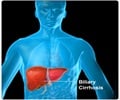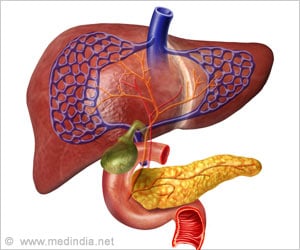Trials of fibrate therapy in primary biliary cholangitis improved symptoms, liver function tests and substitute markers of the disease, reveals study.

‘Combination of bezafibrate with ursodeoxycholic acid in treating biliary cholangitis improved symptoms, liver function tests and surrogate markers of the disease.’





PBC is an inflammatory condition which can lead to cirrhosis, liver failure and cancer. It affects mostly middle-aged women and may progress silently for years; over time, symptoms such as fatigue and itching (pruritus) emerge, often resulting in poor quality of life for patients.PBC is a disease that cannot be cured: there is no therapy that can stop its progression.A large proportion of patients respond to the administration of UDCA, which can significantly improve liver function tests, and slow the destruction of bile ducts as well as disease progression.
However, more than 30% of patients do not respond adequately to UDCA treatment, and thus remain at high risk of disease progression which may require a liver transplant, as well as reduced survival rates.6 Additional treatments for these patients are urgently needed.
"This study is the first large randomised trial of fibrates in patients with PBC who had responded inadequately to UDCA," said Dr Christophe Corpechot, head of the Reference Center for Inflammatory Biliary Diseases, Paris, France, and lead author of the study.
"The study provides evidence supporting the use of a combination of fibrates and UDCA in this population, with normalisation of liver function tests, improved symptoms and prevention of liver disease progression."
Advertisement
Patients with an inadequate biochemical response to UDCA, as defined by the Paris-2 criteria, were randomised to two years of either bezafibrate 400 mg/day or placebo, in combination with UDCA 13-15 mg/kg/day. Normalisation of liver function tests was the primary endpoint.
Advertisement
The rates of serious adverse events were similar in both groups. The rates of end-stage liver complications did not differ between the treatment groups (4% in both groups).
"This study could have an important impact on clinical practice, as it shows that patients with PBC who do not respond adequately to current treatment with UDCA, could obtain a notable benefit with additional bezafibrate therapy, a drug which is already used for the treatment of hypercholesterolaemia," said Prof Marco Marzioni, Professor of Gastroenterology, Università Politecnica delle Marche - "Ospedali Riuniti" University Hospital of Ancona, Italy and EASL Governing Board Member.
Source-Eurekalert









